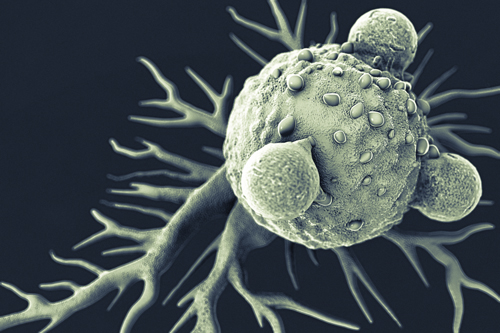Genetic Drivers of Cancerous Tumor Growth
All cancers have a genetic basis and can occur sporadically or be inherited. The three main cancer-causing genes (oncogenes) that contribute to cancer formation are:
- Proto-Oncogenes: These genes are involved in normal cell differentiation and growth; however, a DNA change can result in these cells growing abnormally and surviving.
- Tumor Suppressor Genes: Normally, these genes also help to control cell growth and division, but mutations can result in cells transforming to malignancies.
- DNA Repair Genes: These genes are responsible for fixing damaged DNA within the cell. However, when these genes are mutated, the cell can develop multiple DNA alterations, giving rise to cancerous cells.
How Do Tumors Escape From the Immune System?
The immune system is simply an amazing part of human biology that has built in mechanisms to clear the body of foreign substances, including cancer cells. However, sometimes things go awry. Common mechanisms that tumors might activate to escape from immune cell clearance include:
- Loss or a change in antigens on the tumor. Tumors can lose the major histocompatibility complex (MHC), a group of genes that normally tell the intracellular machinery to transfer tumor antigens to the surface for T-cell recognition.
- Tumors may be able to create a protective environment altering cytokines (e.g., interferon, interleukin, and growth factors) that block tumor antigen recognition by the T-cell.
- Tumors can increase the expression of PD-1 and PD-L1 immune checkpoint molecules that deplete the cancer-clearing T-cell activity.
Boosting the Immune System With Immunotherapy
Promising immunotherapy drug treatments are now approved, under FDA review, or being developed to augment the immune system and fight off these cancerous tumors. Cancer immunotherapy treatments include:
- Monoclonal Antibodies
- Immune Checkpoint Inhibitors (PD-1/PD-L1, and CTLA-4)
- Cancer Vaccines
- Cytokines
- Oncolytic viruses
- Chimeric antigen receptor (CAR) T-cell therapy



